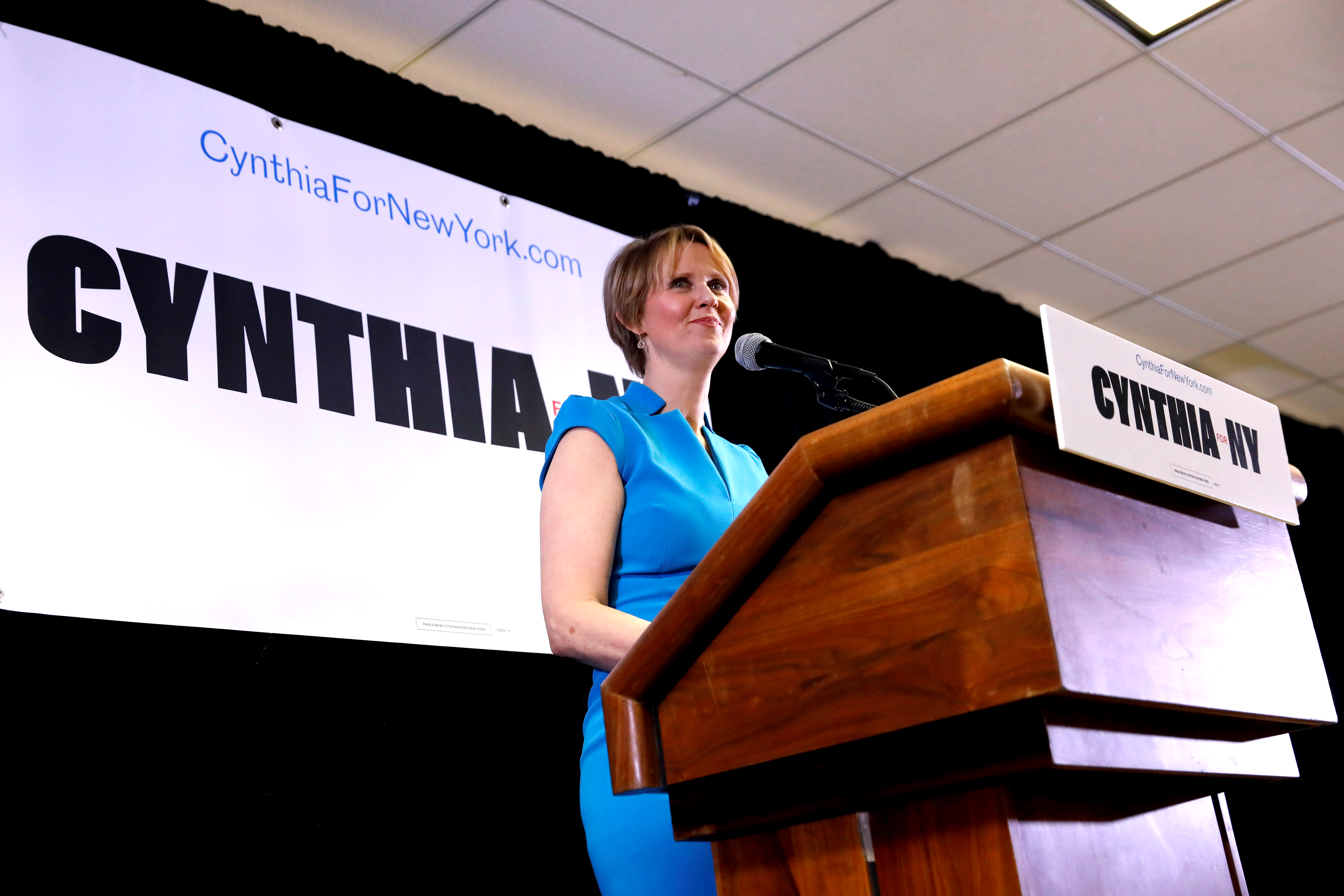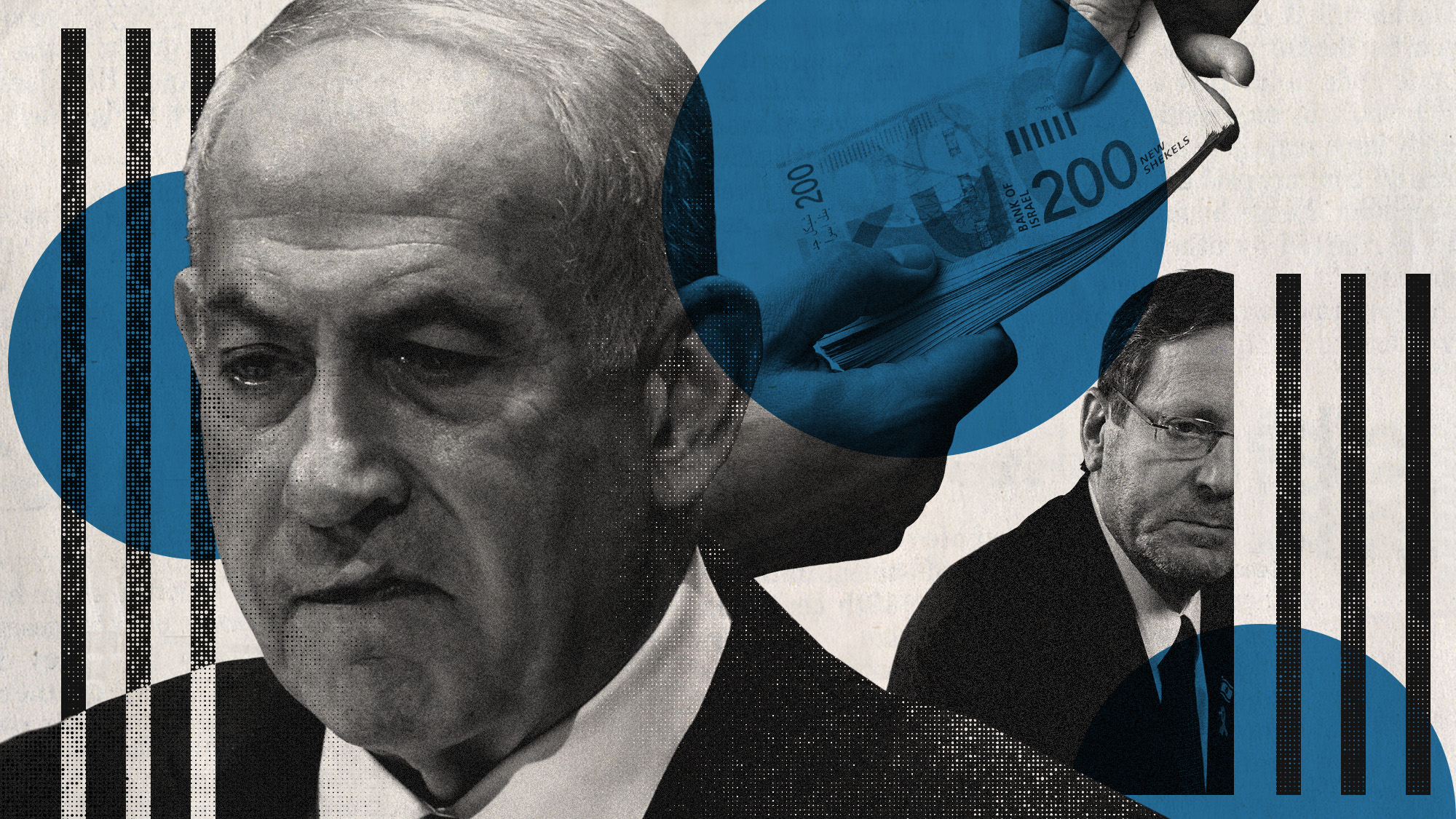Cynthia Nixon is the future of the Democratic Party — for good and ill
What makes her even more purely populist than Bernie Sanders is that she combines his class-based positions with outright appeals to ethnic, gender, and racial identity politics


Thanks to President Trump, we all know what right-wing populism looks and sounds like. It's a billionaire businessman who combines race-baiting white nationalism with anti-immigration fervor, anti-Muslim discrimination, tax breaks for big business, economic protectionism, and flagrantly demagogic attacks on "the media."
But what does the left-wing version of populism look and sound like?
Because Bernie Sanders won 22 states in the 2016 primaries by running an anti-establishment campaign against a candidate strongly endorsed by the institutional Democratic Party, most people have tended to assume that left-wing populism looks and sounds like a septuagenarian senator from Vermont (by way of Brooklyn).
The Week
Escape your echo chamber. Get the facts behind the news, plus analysis from multiple perspectives.

Sign up for The Week's Free Newsletters
From our morning news briefing to a weekly Good News Newsletter, get the best of The Week delivered directly to your inbox.
From our morning news briefing to a weekly Good News Newsletter, get the best of The Week delivered directly to your inbox.
But that's not quite right. Sanders is first and foremost a democratic socialist who rails against inequality and resists any form of identity politics other than one that emphasizes class. He's also served in public office for most of his adult life. That makes him a quintessential left-wing politician — but an imperfect populist for the present moment.
If you want to know what an authentic left-wing populist looks and sounds like — and you want to think through the electoral advantages and disadvantages of the Democratic Party embracing the approach going forward — pay close attention to former actress and activist Cynthia Nixon's recently launched campaign to unseat Andrew Cuomo as governor of New York.
Like Bernie Sanders, Nixon makes class-based appeals, rails against politicians who kowtow to big business, emphasizes her own (early) success in raising small donations from ordinary voters, and supports economic policies that place her firmly on the left side of her party. All of this sounds like what one might expect from a left-wing populist agenda: standing up for the people against the powerful, opposing the political and economic establishment, and promising to purge a corrupt system.
But what makes Nixon even more purely populist than Sanders is that she combines these class-based positions with the outright appeals to ethnic, gender, and racial identity politics favored by grassroots Democratic Party activists. As she argues in a wide-ranging interview with Glamour magazine, "the fact of the matter is, our working class doesn't look like the working class of 1955. Our working class is largely women and people of color."
A free daily email with the biggest news stories of the day – and the best features from TheWeek.com
That may well be true in New York City, where Nixon lives, but it's not true in the country as a whole and most likely not true in New York state as a whole either. Only if black, Latino, and Asian members of the working class are lumped together into a single non-white category do they begin to come close to rivaling the size of the white working class, just as men make up a greater share than women of the working class in general. Yet Democratic activists are convinced that the surest (and morally purest) path to victory for the left runs through such racial and gendered appeals — and Nixon is speaking to those who believe this in a way that Sanders has so far refused to do. That Nixon is an outspoken lesbian and has long dabbled in activism for gay rights and women's reproductive rights only strengthens this dimension of her populist bona fides.
The final aspect of Nixon's populism follows from her line of work. She's an actress who fights for causes she believes in, but she's never served in or run for public office. That lack of experience is one mark of populism, but her notoriety as a TV and movie star is another. If Republicans look for populist saviors among businessmen and trash-talking reality-show stars, Democrats have a soft spot for glamorous, well-meaning celebrities. That's what was behind the recent Oprah boomlet, and it's a large part of what, at this early date, is fueling Nixon's run against Cuomo.
The question is whether it will work for the Democratic Party — in New York state, and beyond.
It just might. Cuomo is widely disliked among left-wing activists, and he's very much a poster boy for the Democratic establishment who has tried to balance selective gestures toward the Sanders agenda with the high-profile cultivation of Wall Street money. He's also presided over the breakdown of the New York City subway system, which has softened his support downstate (the state's most liberal region). All of this makes him vulnerable to a left-wing populist challenge, which is what Nixon promises to mount, with all the charisma, charm, and free publicity that one would expect from a celebrity candidate.
That's how Nixon could win her contest with Cuomo for the Democratic nomination for governor. But what about in the November vote against a Republican opponent? If the anti-Trump blue wave is sufficiently enormous, it could certainly carry her across the finish line. But at what cost to her party's long-term competitiveness?
When Cuomo first ran for governor, he won 63 percent of the vote and carried the overwhelming majority of the state's counties. Four years later, his share of the vote had shrunk to 54.2 percent, with the overwhelming majority of the state's counties going to his Republican opponent. Cuomo was saved by winning by a huge margin in New York City, and by somewhat smaller margins in other cities (Buffalo, Syracuse, Albany, Binghamton) and college towns.
Would Nixon's populist campaign improve on that result, reversing the Democratic Party's transformation into a party that appeals primarily to upper-middle-class and wealthy urbanites and working-class minority groups? Or would she instead solidify the widespread impression that Democrats increasingly view the problems afflicting small town and rural America, along with the struggles of the white working class, with contempt?
The unique awfulness of President Trump may provide enough momentum to allow Nixon and other Democratic populists to prevail in 2018. But that shouldn't be interpreted as a sign of the party's long-term electoral health. As Republicans are currently in the process of learning, a party whose populist passions actively alienate large swaths of the electorate is not a party poised to command majority support.
Democrats can learn that lesson now, or they can learn it later. But they will need to learn it eventually.
Damon Linker is a senior correspondent at TheWeek.com. He is also a former contributing editor at The New Republic and the author of The Theocons and The Religious Test.
-
 ‘They’re nervous about playing the game’
‘They’re nervous about playing the game’Instant Opinion Opinion, comment and editorials of the day
-
 Will Netanyahu get a pardon?
Will Netanyahu get a pardon?Today's Big Question Opponents say yes, if he steps down
-
 December’s books feature otherworldly tales, a literary icon’s life story and an adult royal romp
December’s books feature otherworldly tales, a literary icon’s life story and an adult royal rompThe Week Recommends This month's new releases include ‘The Heir Apparent’ by Rebecca Armitage and ‘Tailored Realities’ by Brandon Sanderson
-
 Has Zohran Mamdani shown the Democrats how to win again?
Has Zohran Mamdani shown the Democrats how to win again?Today’s Big Question New York City mayoral election touted as victory for left-wing populists but moderate centrist wins elsewhere present more complex path for Democratic Party
-
 Millions turn out for anti-Trump ‘No Kings’ rallies
Millions turn out for anti-Trump ‘No Kings’ ralliesSpeed Read An estimated 7 million people participated, 2 million more than at the first ‘No Kings’ protest in June
-
 Ghislaine Maxwell: angling for a Trump pardon
Ghislaine Maxwell: angling for a Trump pardonTalking Point Convicted sex trafficker's testimony could shed new light on president's links to Jeffrey Epstein
-
 The last words and final moments of 40 presidents
The last words and final moments of 40 presidentsThe Explainer Some are eloquent quotes worthy of the holders of the highest office in the nation, and others... aren't
-
 The JFK files: the truth at last?
The JFK files: the truth at last?In The Spotlight More than 64,000 previously classified documents relating the 1963 assassination of John F. Kennedy have been released by the Trump administration
-
 'Seriously, not literally': how should the world take Donald Trump?
'Seriously, not literally': how should the world take Donald Trump?Today's big question White House rhetoric and reality look likely to become increasingly blurred
-
 Will Trump's 'madman' strategy pay off?
Will Trump's 'madman' strategy pay off?Today's Big Question Incoming US president likes to seem unpredictable but, this time round, world leaders could be wise to his playbook
-
 Democrats vs. Republicans: who are US billionaires backing?
Democrats vs. Republicans: who are US billionaires backing?The Explainer Younger tech titans join 'boys' club throwing money and support' behind President Trump, while older plutocrats quietly rebuke new administration
